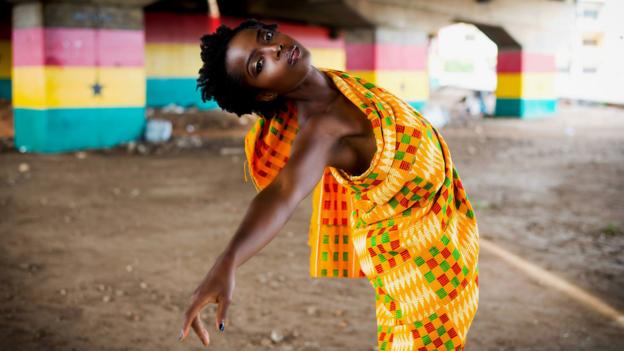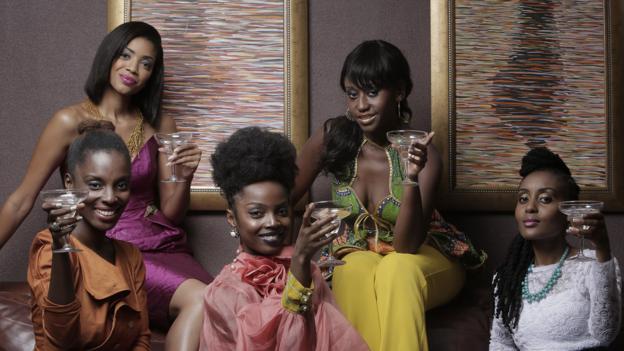Rwanda: Has Kagame exceeded the limits of his US/EU support?
Submitted by Ann Garrison on Sat, 12/05/2015 - 18:54
Transcript:
KPFA/Weekend News Anchor Sharon Sobotta: Both Rwandan and Congolese Americans and other members of the Rwandan and Congolese diaspora have for years asked the United States to stop  On August 4, 2014, Samantha Power posted this picture of herself with President Kagame to her Twitter account, with a note that said they were discussing regional security and Rwanda's contributions to UN peacekeeping forces. This week she called on him to step down at the end of his current term.supporting the military dictatorship of Rwandan President Paul Kagame. Kagame's rule in Rwanda is famously ironfisted and his invasion, massacres and plunder in the Democratic Republic of the Congo have been well documented in more than 20 years of UN investigations. Earlier this week US Ambassador to the UN Samantha Power called on Kagame to step down at the end of his term in 2017. KPFA's Ann Garrison has more.
On August 4, 2014, Samantha Power posted this picture of herself with President Kagame to her Twitter account, with a note that said they were discussing regional security and Rwanda's contributions to UN peacekeeping forces. This week she called on him to step down at the end of his current term.supporting the military dictatorship of Rwandan President Paul Kagame. Kagame's rule in Rwanda is famously ironfisted and his invasion, massacres and plunder in the Democratic Republic of the Congo have been well documented in more than 20 years of UN investigations. Earlier this week US Ambassador to the UN Samantha Power called on Kagame to step down at the end of his term in 2017. KPFA's Ann Garrison has more.
 On August 4, 2014, Samantha Power posted this picture of herself with President Kagame to her Twitter account, with a note that said they were discussing regional security and Rwanda's contributions to UN peacekeeping forces. This week she called on him to step down at the end of his current term.supporting the military dictatorship of Rwandan President Paul Kagame. Kagame's rule in Rwanda is famously ironfisted and his invasion, massacres and plunder in the Democratic Republic of the Congo have been well documented in more than 20 years of UN investigations. Earlier this week US Ambassador to the UN Samantha Power called on Kagame to step down at the end of his term in 2017. KPFA's Ann Garrison has more.
On August 4, 2014, Samantha Power posted this picture of herself with President Kagame to her Twitter account, with a note that said they were discussing regional security and Rwanda's contributions to UN peacekeeping forces. This week she called on him to step down at the end of his current term.supporting the military dictatorship of Rwandan President Paul Kagame. Kagame's rule in Rwanda is famously ironfisted and his invasion, massacres and plunder in the Democratic Republic of the Congo have been well documented in more than 20 years of UN investigations. Earlier this week US Ambassador to the UN Samantha Power called on Kagame to step down at the end of his term in 2017. KPFA's Ann Garrison has more. KPFA/Ann Garrison: In a UN press conference, US Ambassador to the UN Samantha Power called upon Rwandan President Paul Kagame to step down at the end of his term in 2017.
Samantha Power: We expect President Kagame to step down at the end of his term in 2017. President Kagame has an opportunity to set an example for a region in which leaders seem too tempted, again, to view themselves as indispensable to their own country's trajectories.
KPFA: In June, the US State Department told KPFA that it would not support another term for President Kagame. Ambassador Power's statement seemed even more significant because she is a longstanding supporter of Kagame. Power built her career on "Bystanders to Genocide," an article she wrote for the Atlantic Monthly in September 2001, in which she decried US failure to intervene to stop the massacres in Rwanda in 1994. She expanded on that article in her Pulitzer Prize winning book, The Problem from Hell; America in the Age of Genocide, in which she asked the question, "Why do American leaders who vow "never again" repeatedly fail to stop genocide?" As a member of the National Security Council, she is credited with convincing President Obama that the US was morally obliged to join the NATO war on Libya to "stop the next Rwanda."
Rwanda's President Kagame has long been shielded by his powerful friends, including Samantha Power, and Bill Clinton, Tony Blair, Howard Buffett, and Reverend Rick Warren, but Power's statement suggests that Kagame's attempt to cling to power beyond 2017 exceeds the limits of support he can demand from the West. The European Union also objected to Kagame's attempt to cling to power by revising the Rwandan constitution.
In Berkeley, for Pacifica, KPFA and AfrobeatRadio, I'm Ann Garrison.
###
"Hate Cannot Drive Out Hate. Only Love Can Do That", Dr. Martin Luther King.
###
__._,_.___
Posted by: Nzinink <nzinink@yahoo.com>
| Reply via web post | • | Reply to sender | • | Reply to group | • | Start a New Topic | • | Messages in this topic (1) |
----------------------------------------------------------------------------------------------------------
The hate of men will pass, and dictators die, and the power they took from the people will return to the people. And so long as men die, liberty will never perish.
I have loved justice and hated iniquity: therefore I die in exile.
The price good men pay for indifference to public affairs is to be ruled by evil men.
When the white man came we had the land and they had the bibles; now they have the land and we have the bibles.
----------------------------------------------------------------------------------------------------------
The Voice of the Poor, the Weak and Powerless.
-----------------------------------------------------------
Post message: AfricaRealities@yahoogroups.com
Subscribe: AfricaRealities-subscribe@yahoogroups.com
Unsubscribe: AfricaRealities-unsubscribe@yahoogroups.com
List owner: AfricaRealities-owner@yahoogroups.com
__________________________________________________________________
Please consider the environment before printing this email or any attachments.
---------------------------------------------------------------------------------------------------------------------
-http://www.africarealities.com/
-https://www.facebook.com/africarealities
-----------------------------------------------------------------------------------------
-New International Scholarships opportunities: http://www.scholarshipsgate.com
-----------------------------------------------------------------------------------------------
Find Friends in Africa:
http://www.africanaffection.com
http://www.datinginafrica.com/
http://www.foraha.net
https://www.facebook.com/onlinedatinginafrica
The hate of men will pass, and dictators die, and the power they took from the people will return to the people. And so long as men die, liberty will never perish.
I have loved justice and hated iniquity: therefore I die in exile.
The price good men pay for indifference to public affairs is to be ruled by evil men.
When the white man came we had the land and they had the bibles; now they have the land and we have the bibles.
----------------------------------------------------------------------------------------------------------
The Voice of the Poor, the Weak and Powerless.
-----------------------------------------------------------
Post message: AfricaRealities@yahoogroups.com
Subscribe: AfricaRealities-subscribe@yahoogroups.com
Unsubscribe: AfricaRealities-unsubscribe@yahoogroups.com
List owner: AfricaRealities-owner@yahoogroups.com
__________________________________________________________________
Please consider the environment before printing this email or any attachments.
---------------------------------------------------------------------------------------------------------------------
-http://www.africarealities.com/
-https://www.facebook.com/africarealities
-----------------------------------------------------------------------------------------
-New International Scholarships opportunities: http://www.scholarshipsgate.com
-----------------------------------------------------------------------------------------------
Find Friends in Africa:
http://www.africanaffection.com
http://www.datinginafrica.com/
http://www.foraha.net
https://www.facebook.com/onlinedatinginafrica
.
__,_._,___


